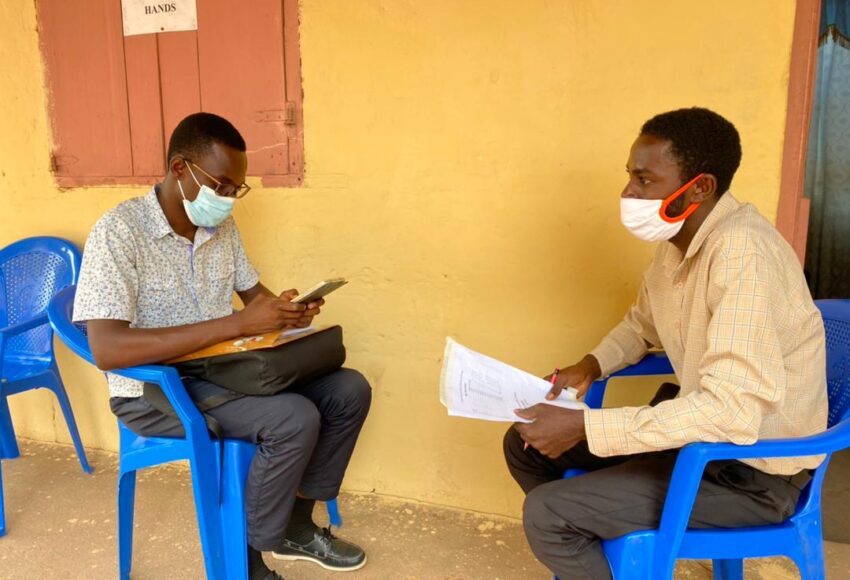
- May 1, 2022
- 0 Comments
- 3018 Views
- 0 Likes
- Our Experience
RECENT EVALUATION & DESIGN WORK
Impact Assessment of COVID-19 on Low Fee Private Schools in Ghana, IDP Foundation (June 2020 - May 2021)
Associates for Change conducted a Pre and Post Assessment of low fee private schools within the IDP Rising School Program in Ghana. The IDP Rising School Program (IDPRSP) aims to assist low fee private schools in providing and sustaining an environment conducive to learning. The program focuses on financial and school management training for the proprietors of these schools and allows them to access subsidised loan funding to develop their education delivery. As part of IDP’s expansion plan, funding was made available to Sinapi Aba to increase the number of beneficiary schools from 584 to 1000 and provide about 400 additional loans to be disbursed to the schools over the five years. The Pre-reopening Assessment was conducted to understand the context of COVID, the uncertainty around school reopening and the potential impact this has had on low-cost private schools. The Post-reopening Assessment was conducted to provide a more detailed assessment of the financial models and operational management of the LFPS compared to the Pre-reopening Assessment.
2. End-line Evaluation of the Reaching and Teaching Out-of-school Children (REACH) Project in Ghana, Plan International (January 2020 – October 2020)
Associates for Change conducted the end-line evaluation of the Reaching and Teaching Out-of-school Children (REACH) Project in Ghana. The objective of the evaluation was to provide an independent assessment that will demonstrate the project’s performance against the outcomes and offer recommendations based on findings that can help shape future programming for out-of-school children. The evaluation involved field visits to eighty-four communities across six districts in two regions, targeting transitioned and drop-out CBE graduates and their parents, traditional and religious leaders, community leaders, SMC/PTAs members, CBE facilitators, head teachers and teachers of schools with transitioned CBE graduates. The stakeholder level engagement involved district education officials and staff of Plan International at district, regional and national levels.
Meta-Evaluation of the Commonwealth of Learning Strategic Plan 2015-2021
Associates for Change, in association with Project Services International (PSI) undertook a meta-evaluation in the fifth year (2020) of Commonwealth of Learning (COL)’s six-year strategic plan to assess the progress of the programmes of this strategic plan, which intends to improve the quality and access to teaching and learning through open and distance learning (ODL) systems. The evaluation used a mixed-method approach by employing information drawn from COL documents and evidence obtained from interviews with key informants like COL donors, staff and management.
External Evaluation Research Services - Baseline Evaluation of the Train for Tomorrow (T4T) Project-Second Phase. Varkey Foundation (2018 – 2019)
Associates for Change (AfC) provided technical services for the Varkey Foundation in conducting an external evaluation of the second phase of its Train for Tomorrow (T4T) programme at baseline and end-line, based on experimental design, using a Randomised Control Trial (RCT) model. The Varkey T4T baseline evaluation was conducted in ninety-six intervention and twenty-four non-intervention schools across twenty-four districts using mixed-method approaches adopting qualitative and quantitative methodologies.
Right to Play-Play for the Advancement of Quality Education (PAQE) - Ghana Country Evaluation Data Collection. Harry Cummings and Associates (HCA), Canada, 2017:
Associates for Change (AFC) was contracted by Harry Cummings and Associates (HCA), Canada to conduct the country evaluation data collection of the Right to Play’s– Play for the Advancement of Quality Education (PAQE). The data collection covered several basic schools in six districts in five regions across Ghana. The focus of the evaluation was to assess the use of Play-Based Methodology (PBL) in lesson delivery by teachers in the classroom and in the school environment in general.
Evaluation of World Food Programme (WFP) Ghana Country Programme (2010) and (2015)
AfC was involved in conducting two evaluations of the WFP Country programmes in 2015, and earlier in the Country Evaluation 2006-2010. The country evaluation included an extensive study on the outputs, outcomes and impact of the WFP’s Ghana country programme. This evaluation included a beneficiary assessment in twelve communities in northern Ghana across three districts and an extensive desk review, stakeholder consultations and secondary data analysis across the education, health and rural development interventions. The evaluation focused on assessing beneficiary views of the programme interventions’ impact and sustainability, including women’s income-generating activities, school feeding and take-home rations for girls, and nutrition centre interventions and support.
Consultancy Services for “Impact Assessment of the Untrained Teacher Diploma in Basic Education (UTDBE) and Sample Survey of Lesson Delivery: Lesson Observation Survey”, Ghana Education Service and World Bank, 2015.
The evaluation of the UTDBE programme component of GPEG was to assess the extent to which the programme has achieved its objective of upgrading the skills of the trainee teachers in the deprived districts to improve learning outcomes.
Final Evaluation of USAID JHS Education Project, Ghana Transition and Persistence (TAP) Program. Plan Ghana. 2013
Associates for Change was contracted to conduct a final external evaluation of the USAID JHS Education Program: Transition and Persistence (TAP) Project. The rationale for the final evaluation was to supplement the routine data collection on indicators and objectives monitored throughout the life of the TAP project and to explore extensively the five key aspects of the project based on DAC criteria: relevance, efficiency, effectiveness, results, and sustainability[1] drawing on existing data from TAP monitoring reports, interviews with staff, beneficiaries and collaborators. The evaluation used a results-based approach (RBM) and involved extensive fieldwork.
